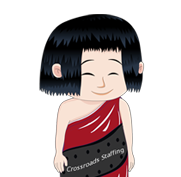How To Improve Email Communication
Now, it’s always better to present important ideas and questions in person. However, sometimes your managers or co-workers do go on business trips, or some things just require a quick email correspondence. In those cases, you should make sure your email communication etiquette is clear. Here are a few tips to help your team’s e-mail communication flow better:
Organize your inbox
Sometimes, your important emails just get lost in a sea of unwanted subscriptions and upcoming events. Create folders for different types of emails - advertisements, work, networking, etc. And always always delete or unsubscribe emails that just create unwanted congestion. A good tip is to set some time to go through and clean your inbox or always keep it clean as a continual workflow solution.
Send emails at a specific time
Are you on a work trip and know you won’t reach your laptop until 4pm? Let your team know ahead of time. Or, are you in the office but prefer to answer emails at the end of the day? Again, let your team know ahead of time. Of course, make it a point to check your inbox at certain times a day to check-in with other clients and customers. However, it’s always helpful just to set aside specific times of the day where you are best to contact. That makes things much more efficient.
Send specific emails
Do you often send very open-ended emails out of the blue? This is sometimes unavoidable and harmless, but it always helps to be more specific. For example, say you want to ask your finance manager about a program tool. Just asking, “What do you think of this program?” isn’t bad, but it will certainly create a chain of about 10 back and forth email replies. If you have time for that, great. If not, be specific -- “What do you think of us using this program next month? Will it take long for the team to learn, and do you think it’ll be productive in the long run?”
Just speak over the phone or in person
Some things will be too confusing to discuss through email. Again, you do not want to end up having to look through a 20 message email chain just to gather the specifics of an important project. Instead, set aside time for feedback with your employees, or discuss matters in a next staff meeting. Anything immediate could also just be called in to you, or discuss in your office.
02
Mar
Related Posts


